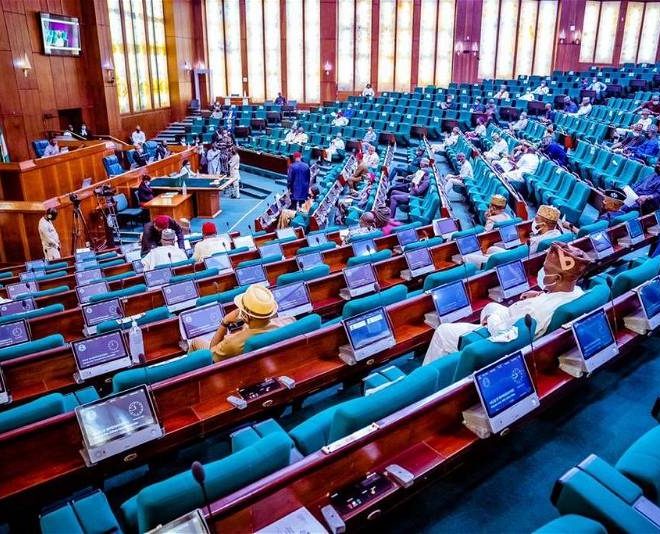🌿 Ruzu Non-Alcoholic Herbal Bitters
Ruzu Non-Alcoholic Herbal Bitters is a natural health supplement specially formulated to:
- ✅ Promote general wellness
- ✅ Detoxify the body
- ✅ Support the treatment of various ailments
Made from a powerful blend of 100% organic and medicinal herbs, Ruzu is completely alcohol-free, making it ideal for:
- 👪 All age groups
- 🌱 Health-conscious individuals
- 🌿 Anyone seeking non-alcoholic herbal remedies
Whether you're looking to boost your vitality, cleanse your system, or support healing the natural way, Ruzu Bitters offers a trusted herbal solution.
In a move that could significantly alter Nigeria’s political landscape, 35 members of the House of Representatives on Monday, proposed a bill seeking a series of constitutional amendments.
The proposed changes include a rotational presidency among the six geopolitical zones, a single six-year term for presidents and governors, and the creation of two vice presidential positions.
The bill’s lead sponsor, Ikenga Ugochinyere (PDP-Imo), argued that a rotational presidency would foster a sense of national unity and reduce tensions by ensuring equitable representation for all regions.
Proponents also believe it could lessen the intense competition for the presidency, which some see as fueling political instability.
Ugochinyere said: “The bill is also seeking reduction in government spending and wastage, efficiency in governance, and national stability by providing a single term of six years for the President and Governors.”
According to the lawmakers, we want the creation of the office of two vice presidents from the southern and northern parts of Nigeria.
“The 1st vice shall be a succession Vice president, while the 2nd Vice president shall be a Minister in charge of the Economy, and both shall be Ministers,” he added.
A single six-year term for the president and governors is another key aspect of the proposal. Backers argue this would enhance focus on long-term development goals, as presidents wouldn’t be preoccupied with securing re-election. They also believe it could streamline governance and reduce government spending associated with re-election campaigns.
The proposed creation of two vice presidents, one from the north and one from the south, introduces a new layer to the executive branch. The bill’s details on their specific roles are unclear, but it suggests a potential power-sharing arrangement aimed at balancing regional interests.
This proposal is likely to generate significant debate. While some may see it as a path towards greater national cohesion and effective governance, others might express concerns. Critics could argue that a rotational presidency could lead to a focus on regional appeasement over meritocratic selection. Additionally, a single term limit could hinder continuity and experience in leadership positions.
The bill faces a long road ahead. It must navigate through the legislative process, garnering two-thirds majority votes in both chambers of the National Assembly. Additionally, it would require approval from at least two-thirds of the 36 state Houses of Assembly for incorporation into the constitution.
If you like what we do, and are ready to uphold solutions journalism, kindly donate to the Ripples Nigeria cause.
















